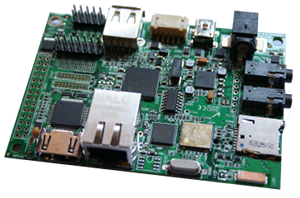 As usual, the latest Buildroot version has been released just in time on the last day of the month: Buildroot 2011.02 is available for download!
As usual, the latest Buildroot version has been released just in time on the last day of the month: Buildroot 2011.02 is available for download!
This release of the increasingly popular embedded Linux build system provides new interesting features and updates:
- Support of external toolchains has been improved with support for toolchain profiles. Those are predefined configurations for well-known toolchains such as the CodeSourcery ones for ARM, PowerPC, MIPS and SuperH. Buildroot is now capable of automatically downloading and installing those external toolchains, which is much easier than downloading them manually. It’s now easy to provide users with Buildroot configurations that use well known toolchains, without requiring them to pre-install anything specific.
- Support for board configurations has been completely rewritten and largely simplified. All board-specific Makefile and configuration options have been removed, and instead, each board is represented by a single, simple (less than 20 lines) defconfig file, in the
configs/directory. In addition to the existing configuration, we have added support for the Mini2440 platform but also for many Qemu emulated platforms: Qemu ARM Versatile, Qemu MIPSel Malta, Qemu PowerPC G3 Beige, Qemu SH4 r2d and Qemu x86. Those configurations allow to easily produce a known-to-work system for the Qemu emulator, making Buildroot even easier to start working on your embedded Linux system. See the documentation for more details on how to add your own board support. - Support for the Blackfin architecture has been added, thanks to Mike Frysinger. This support came along with a lot of fixes to make Buildroot work better for non-MMU architectures, since Blackfin is the first actively supported non-MMU architecture in Buildroot. There will certainly be further improvements to support non-MMU architectures, and hopefully additional non-MMU platforms will be added. For those platforms, Buildroot is generally a very good embedded Linux build system, as those architectures are typically used for small to medium sized systems, with a relatively limited number of components.
- The Crosstool-NG back-end has been improved and extended to support more Buildroot options, and has been upgraded to a newer Crosstool-NG version. This back-end is the third mode for Buildroot toolchain: it allows Buildroot to use Crosstool-NG as the toolchain generator.
- Ccache support has been reworked and it now works properly. Since Buildroot often requires complete rebuilds from scratch, having the ccache compiler cache is very nice. On my laptop, compiling from scratch a sample Buildroot system was taking 5 minutes and 29 seconds without ccache, and now only takes 3 minutes and 40 seconds with ccache enabled and the cache already filled by a previous build.
- A new CMake infrastructure has been added for packages, next to the existing generic and autotools infrastructure. For the moment, only two packages are using the infrastructure (cdrkit and libcuefile), but CMake is an increasingly popular build system and we will definitely see more packages using it in the future. Moreover, Buildroot generates a CMake toolchain file that describes the toolchain used by Buildroot, and which makes it very easy to cross-compile external libraries/applications for the Buildroot system using
cmake -DCMAKE_TOOLCHAIN_FILE=/path/to/buildroot/output/toolchainfile.cmake. - A very nice cleanup job of the internal toolchain build process has been started by Gustavo Zacarias. The build process of binutils, gmp, mpfr and mpc has been migrated to proper packages, and this will also be done for gcc and gdb in the future.
- As preliminary steps towards the generation of a standalone SDK from Buildroot, two important changes have been made. First, the staging directory is now inside
$(O)/host/usr/PLATFORM-TUPLE/sysroot/, but a symbolic link from$(O)/staginghas been kept for compatibility. This change will allow the $(O)/host directory to be the standalone SDK in the future. The second change is on pkg-config: its configuration has been adjusted so that it behaves properly to compile target packages without needing any environment variables or options. It makes the Buildroot pkg-config much easier to use to compile external applications. - The Python package has been upgraded to the latest Python version, 2.7.1. This was needed since a long time, since the version of Python we had in Buildroot was only 2.4. Moreover, the package has been completely rewritten, with more options, and has been tested on several platforms. Two external Python modules, python-mad and python-serial have also been added as packages, to show how such modules can be integrated into Buildroot.
- A set of packages to add support in GStreamer for the TI DSP codecs has been added: gst-dsp, gst-omapfb, tidsp-binaries, dsp-tools, thanks to Felipe Contreras.
- We have a bunch of new packages as well: mpd, the Music Player Daemon with many audio codecs and libraries, the dhrystone and whetstone benchmarks and other tools such as xmlstarlet, fbgrab, irda-utils, lsuio, etc.
- Many other packages have been upgraded or fixed, and the results of our random configuration builds are much, much better than they were in the past.
As a Bootlin engineer, I have again contributed significantly to this release: Peter Korsgaard, the Buildroot maintainer, has done 171 commits, Gustavo Zacarias has done 119 commits and I have done 103 commits. The next committer is Mike Frysinger (for the great Blackfin support) with 22 commits.
It is with this great Buildroot knowledge and experience that Bootlin has launched a few weeks ago an official offering of Buildroot commercial support. If you are using Buildroot for your embedded product, or want the buyers of your hardware platform to have a simple but efficient embedded Linux build system and you need help, development or consulting, do not hesitate to contact us.


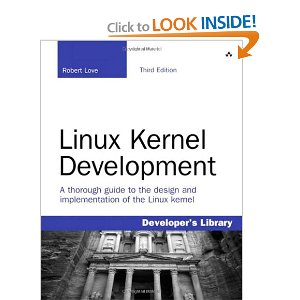
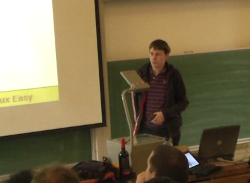
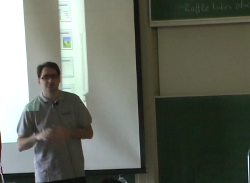
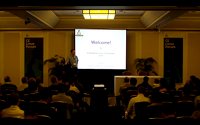
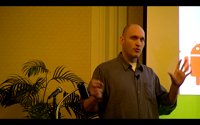
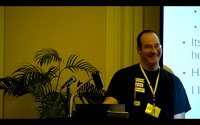
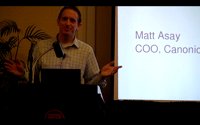
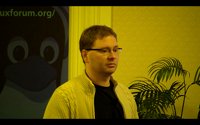
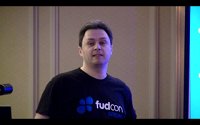
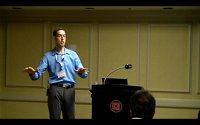
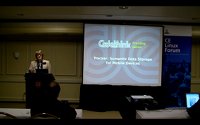

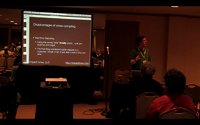
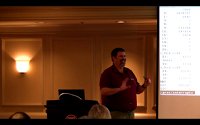
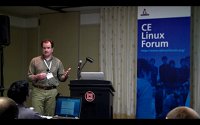
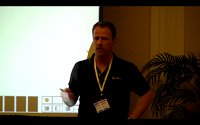
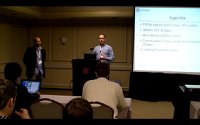
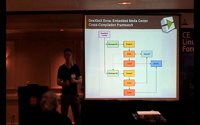
 The Bootlin website is proudly powered by
The Bootlin website is proudly powered by 